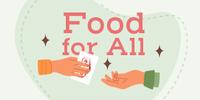It's the most popular social media application on the world-wide-web! Facebook currently has over 2 billion active users. Being at the forefront of this technology obviously has its financial perks, but it also means that you are the target when people are unhappy. And unhappy they seem to be. Increasingly so, according to recent studies.
In this study, people seem to become more depressed, the longer that they spend on social media. Another study, found here, noted similar findings, and that the effects were not different for men or women. Both studies provide evidence that people feel depressed after spending a great deal of time on Facebook (and other social media) because they feel bad when comparing themselves to others.
Comparing ourselves to the "Jones' " is something that we've been doing for generations. Social media has allowed us to do a few things to amplify its effects. Firstly, it's in your face ALL OF THE TIME! You're constantly barraged with updates of people's achievements, and glimpses into how "their life is way better than yours."
Secondly, social media allows us to fabricate greatness. We can put any picture, with any filter and post any message on our profile. These aren't necessarily tempered by reality. As a result, we see what people want us to see, on repeat, without any of the negatives of their day-to-day life.
Thirdly, there's acceptance for anything out there. Facebook has become a haven for cyberbullying and misguided support. People can feel untouchable online, where anything they state on social media doesn't really have "real-world" consequences. Users can also find acceptance for any thought, action or behaviour. While acceptance is something we all need and can be an amazing thing, in the unhealthy form it goes by the name of "enabling." Many users, especially our youth, will turn to social media for acceptance of poor behaviours or dangerous habits when their inner circle of family and friends doesn't approve. As a result, unhealthy choices can be perpetuated by an online community that "appears" to have your back, but has no real investment in your success as a person.

Facebook is changing what users will see in their "highlights" feed and will be cutting back on things that users tend to passively consume. The change could end up having a negative effect on businesses and news organizations that tend to depend on Facebook to share their content.
Facebook CEO Mark Zuckerberg wrote this in a post last week,
"The research shows that when we use social media to connect with people we care about, it can be good for our well-being. We can feel more connected and less lonely, and that correlates with long-term measures of happiness and health. On the other hand, passively reading articles or watching videos, even if they are entertaining or informative, may not be as good."
Facebook hasn't revealed many specifics on how they plan to change our newsfeeds but did indicate that the result will likely be less time spent on the app. Less time online, with more positive and quality interactions in the time that we do spend there. If this truly is the direction Facebook is taking, and they actually have a person's mental health and well being in mind, then they would have my support in the coming changes.
You can read Mark Zuckerberg's full post from last week here.


















